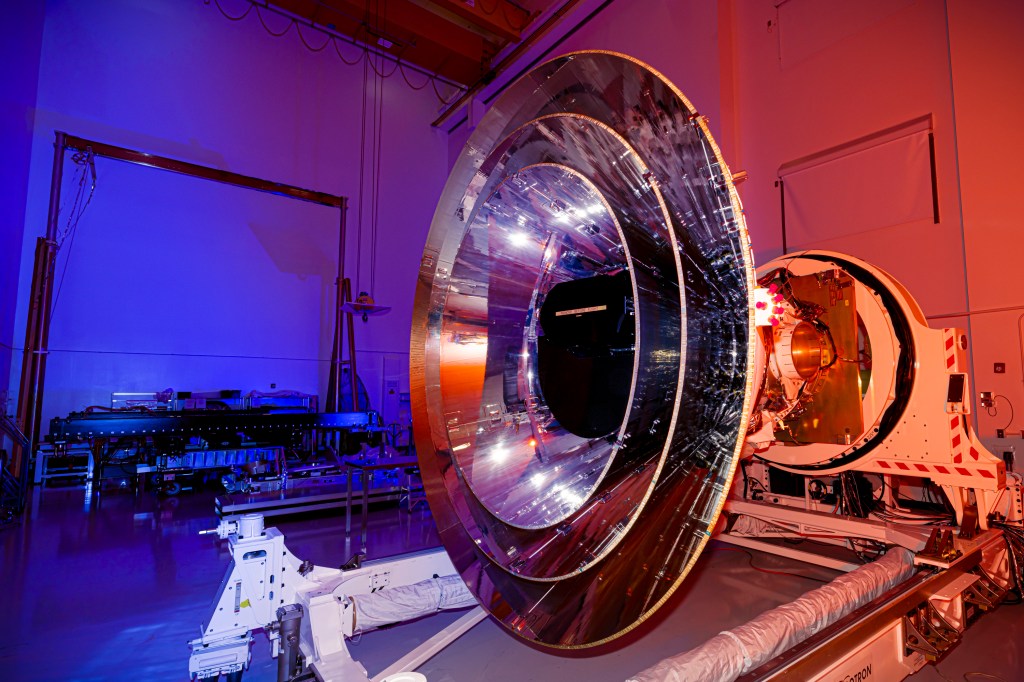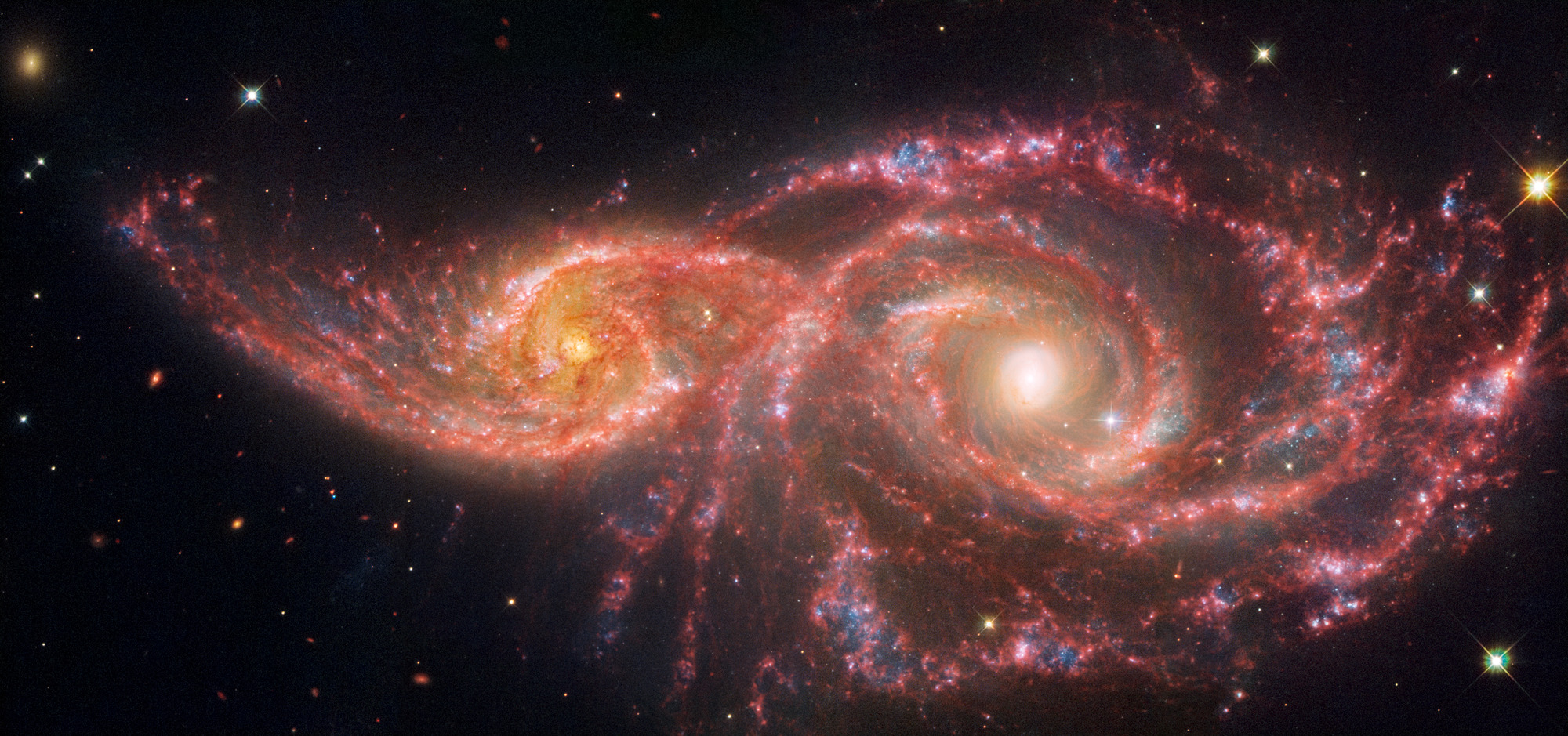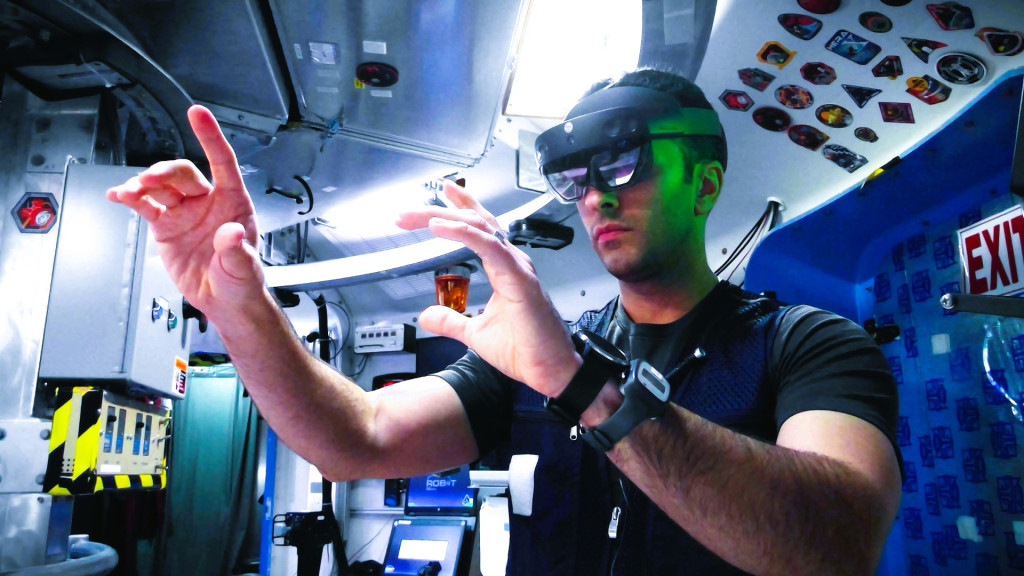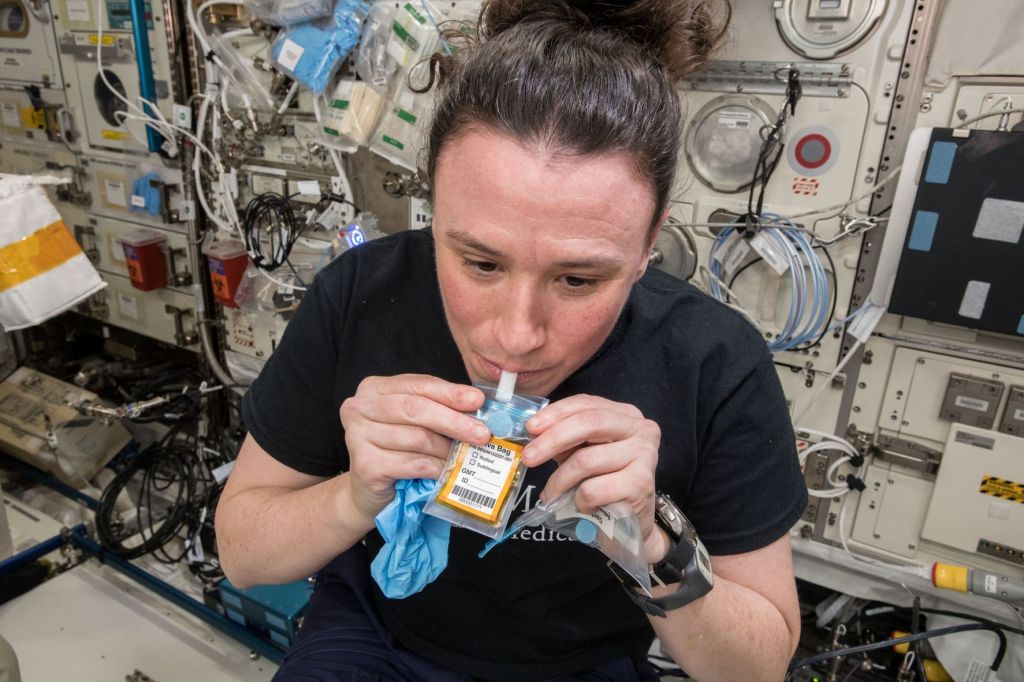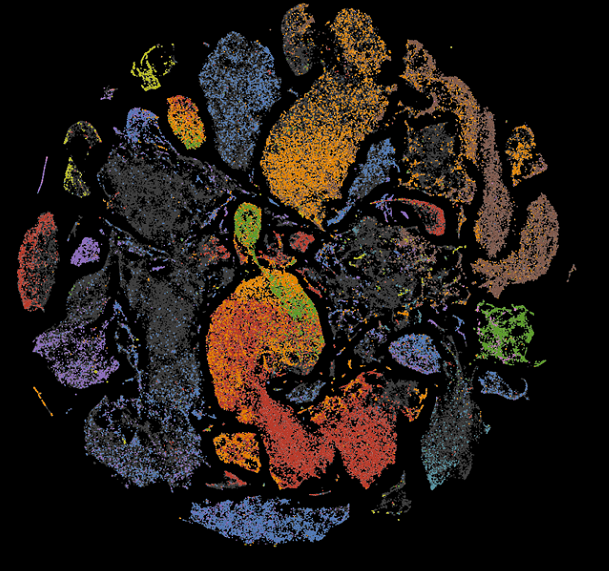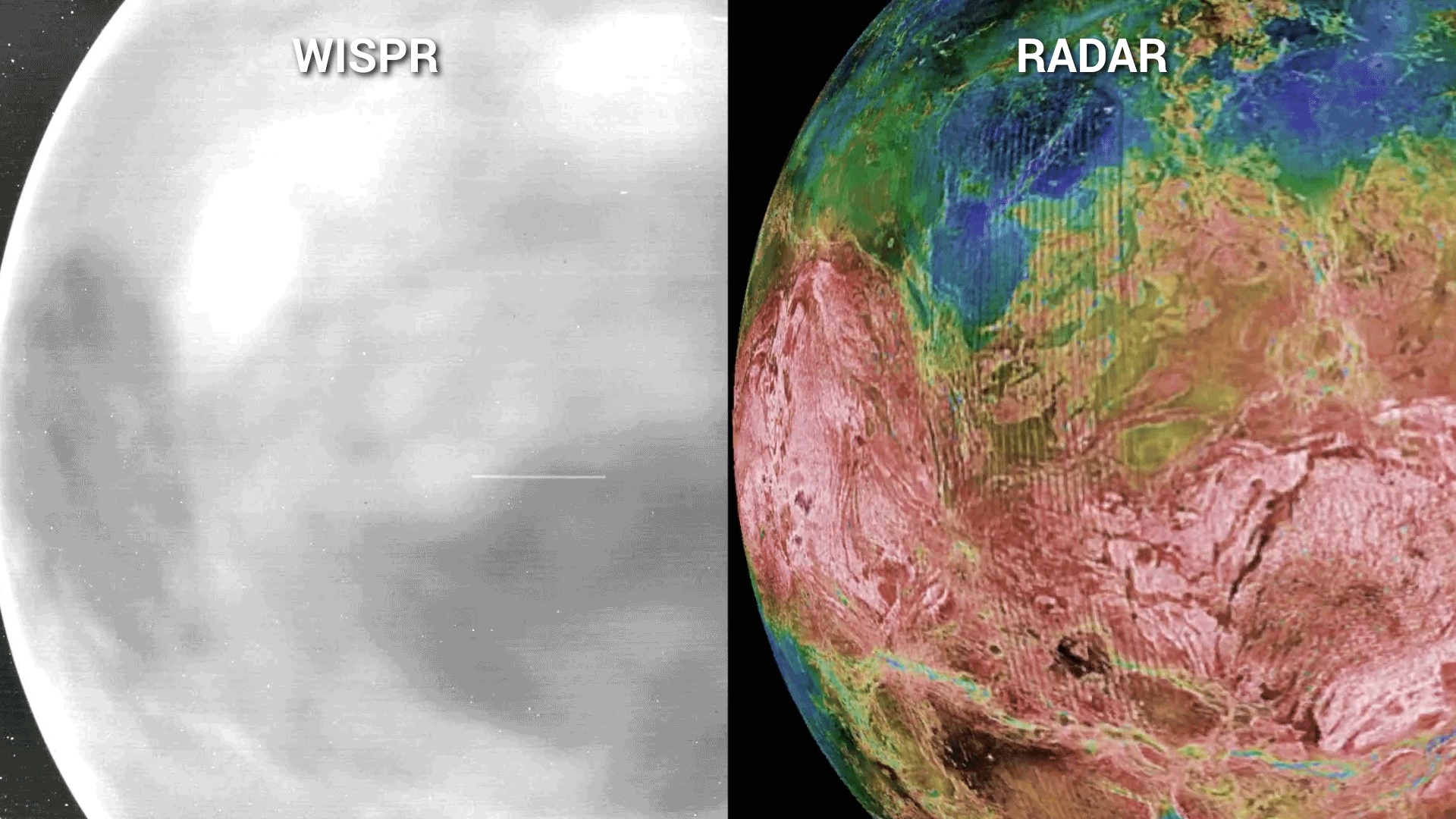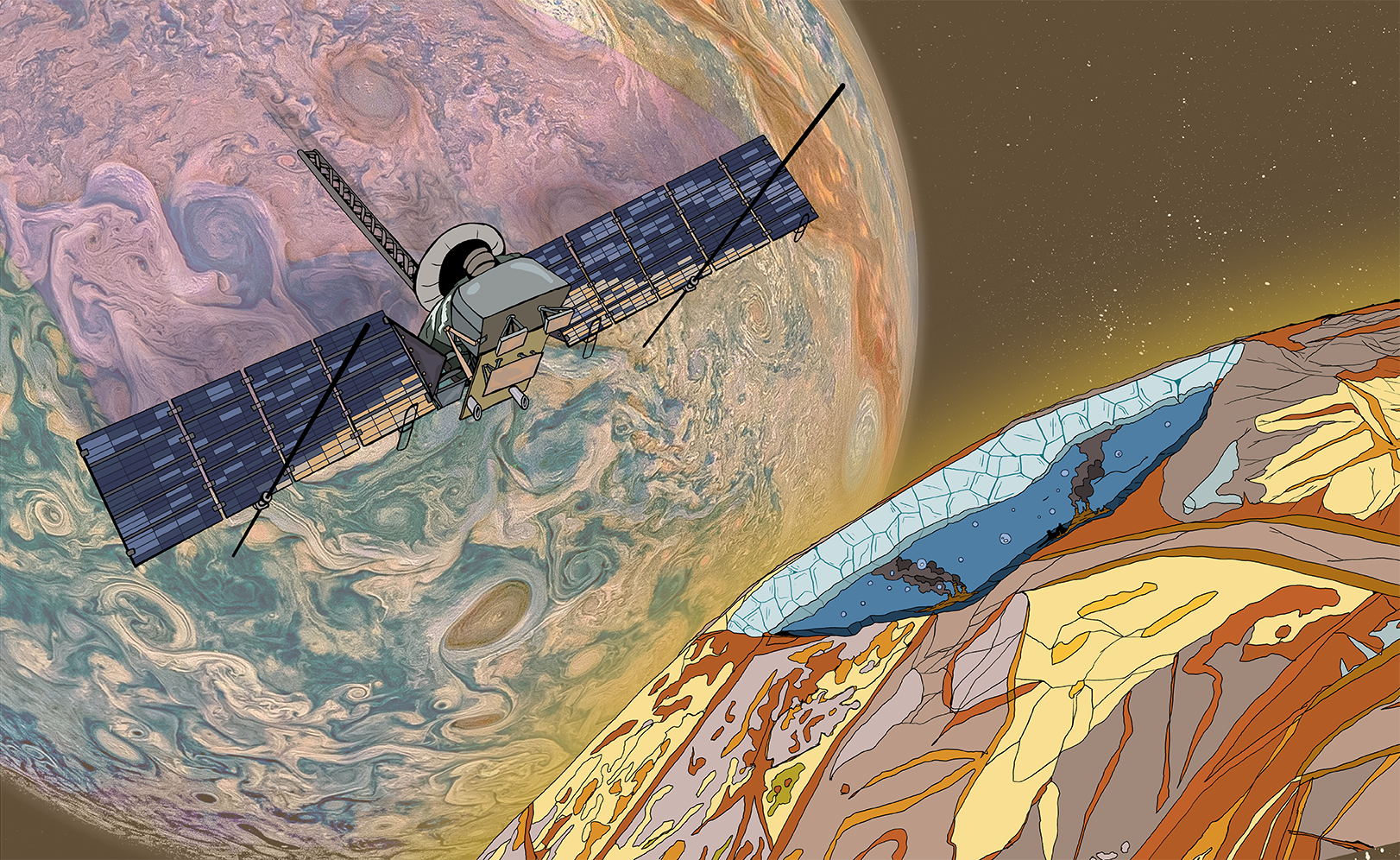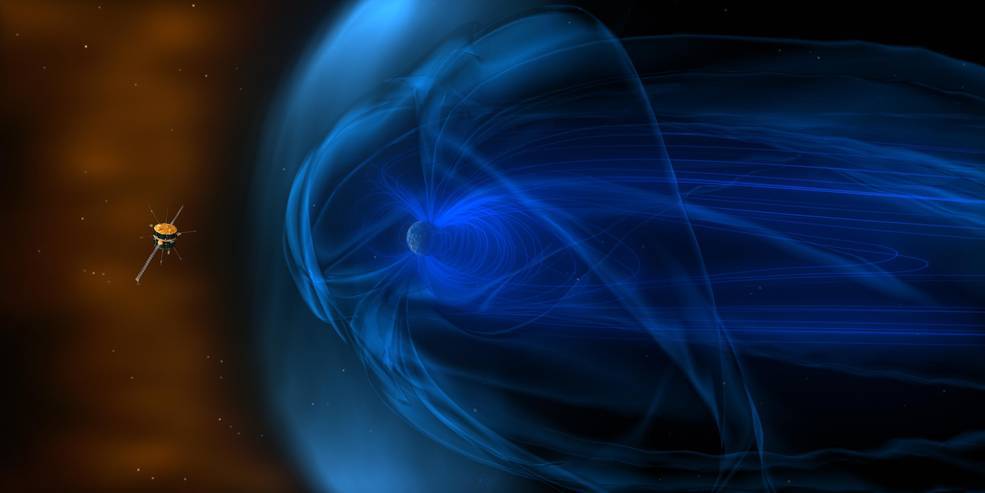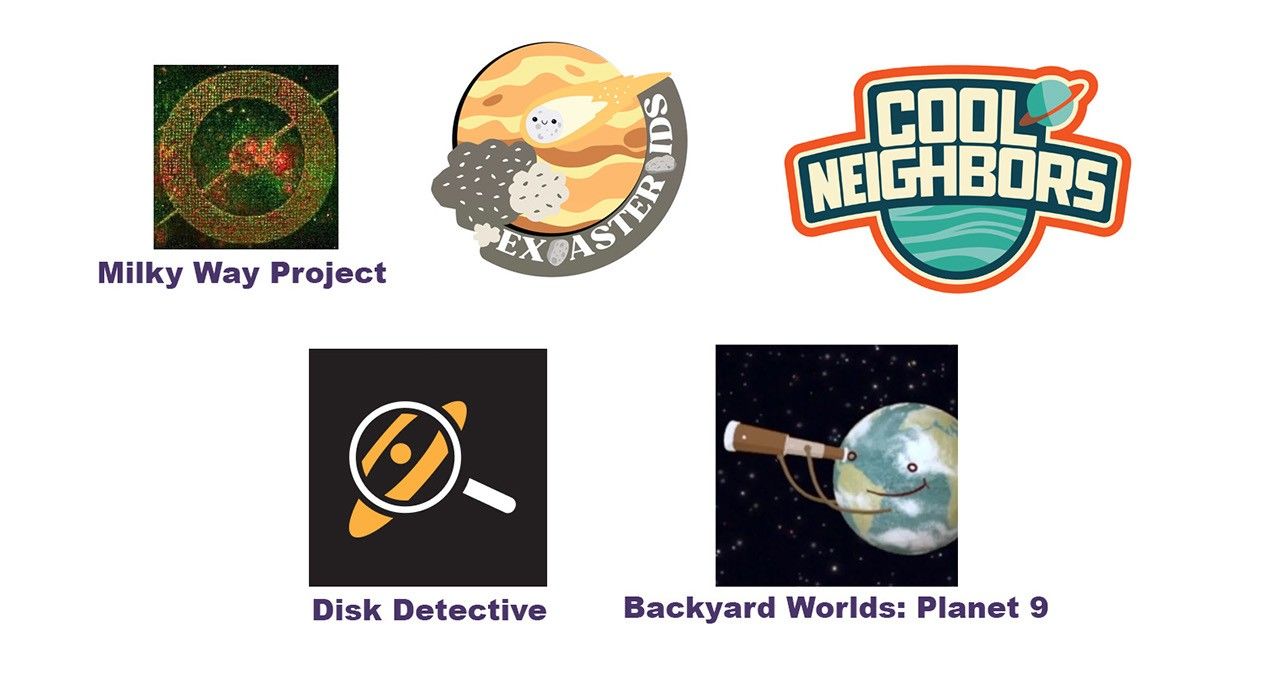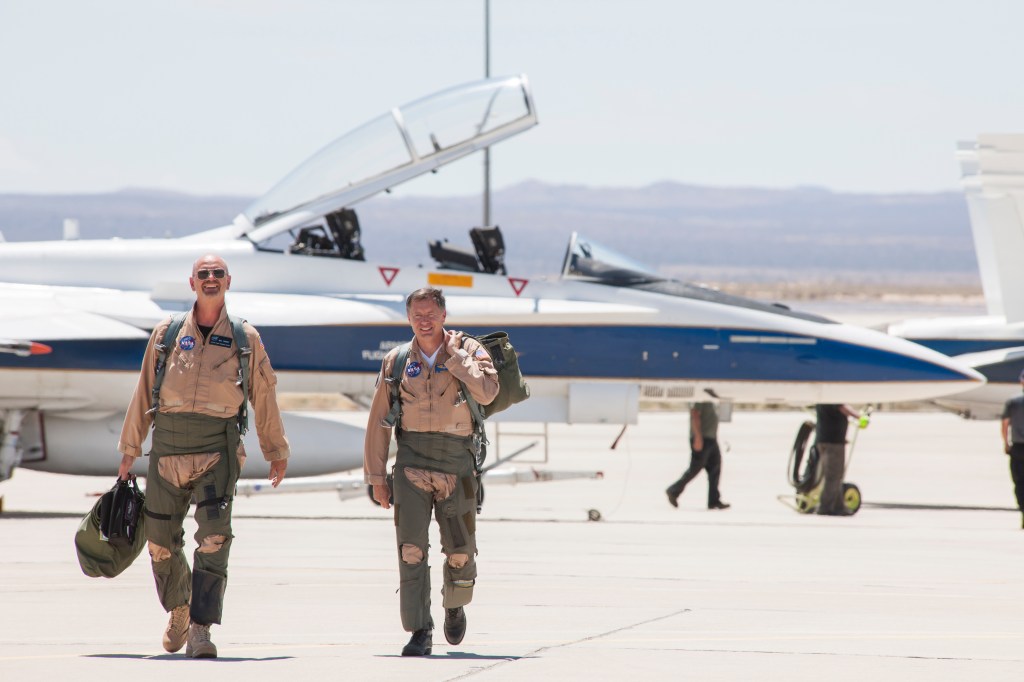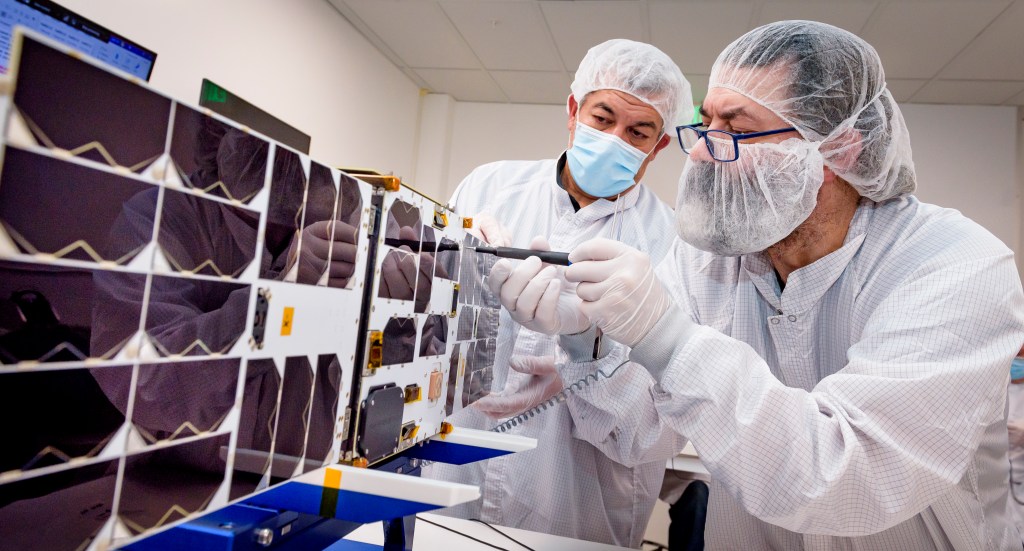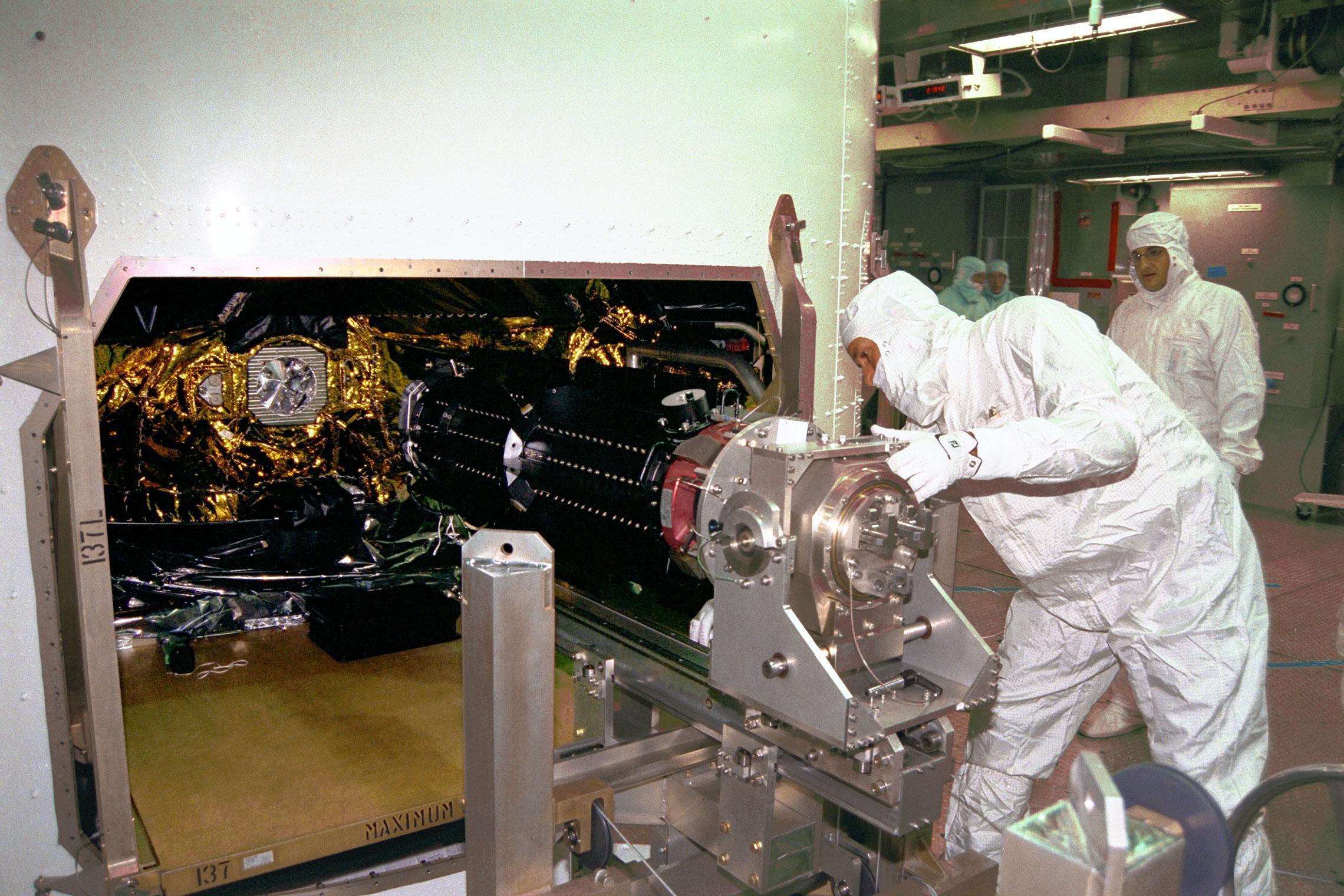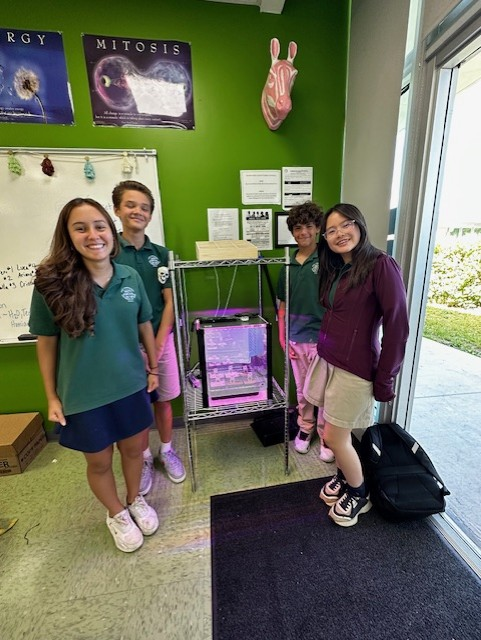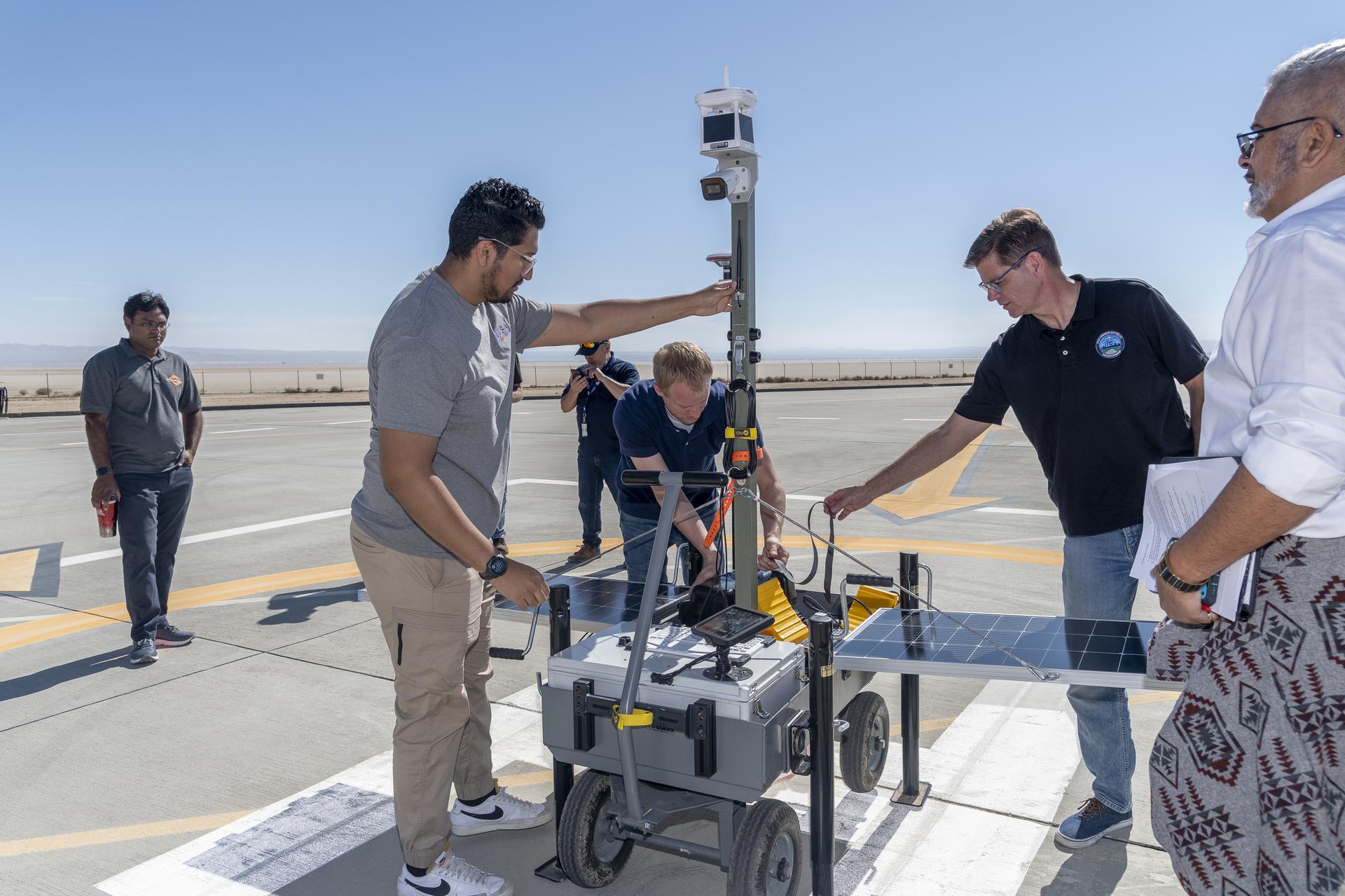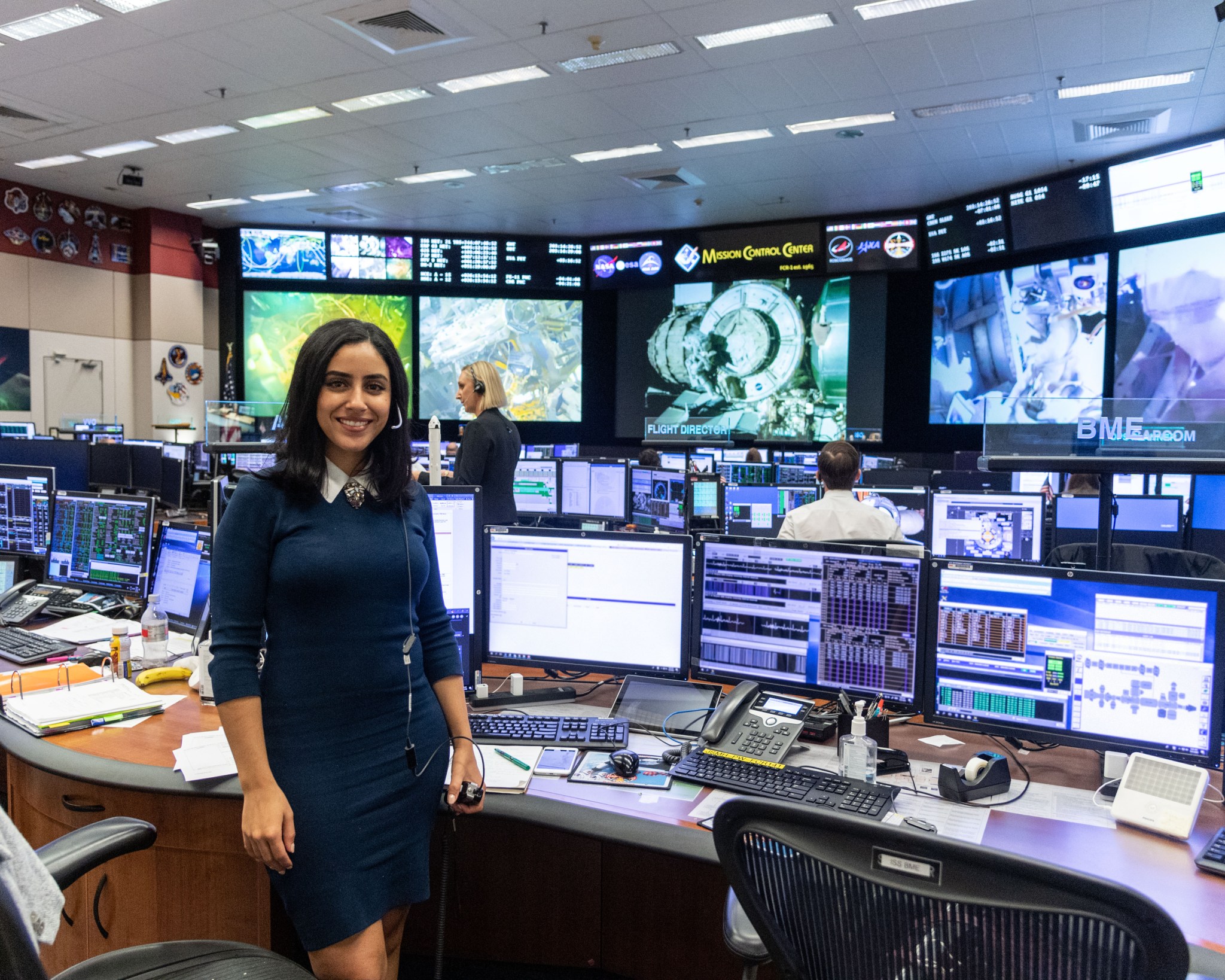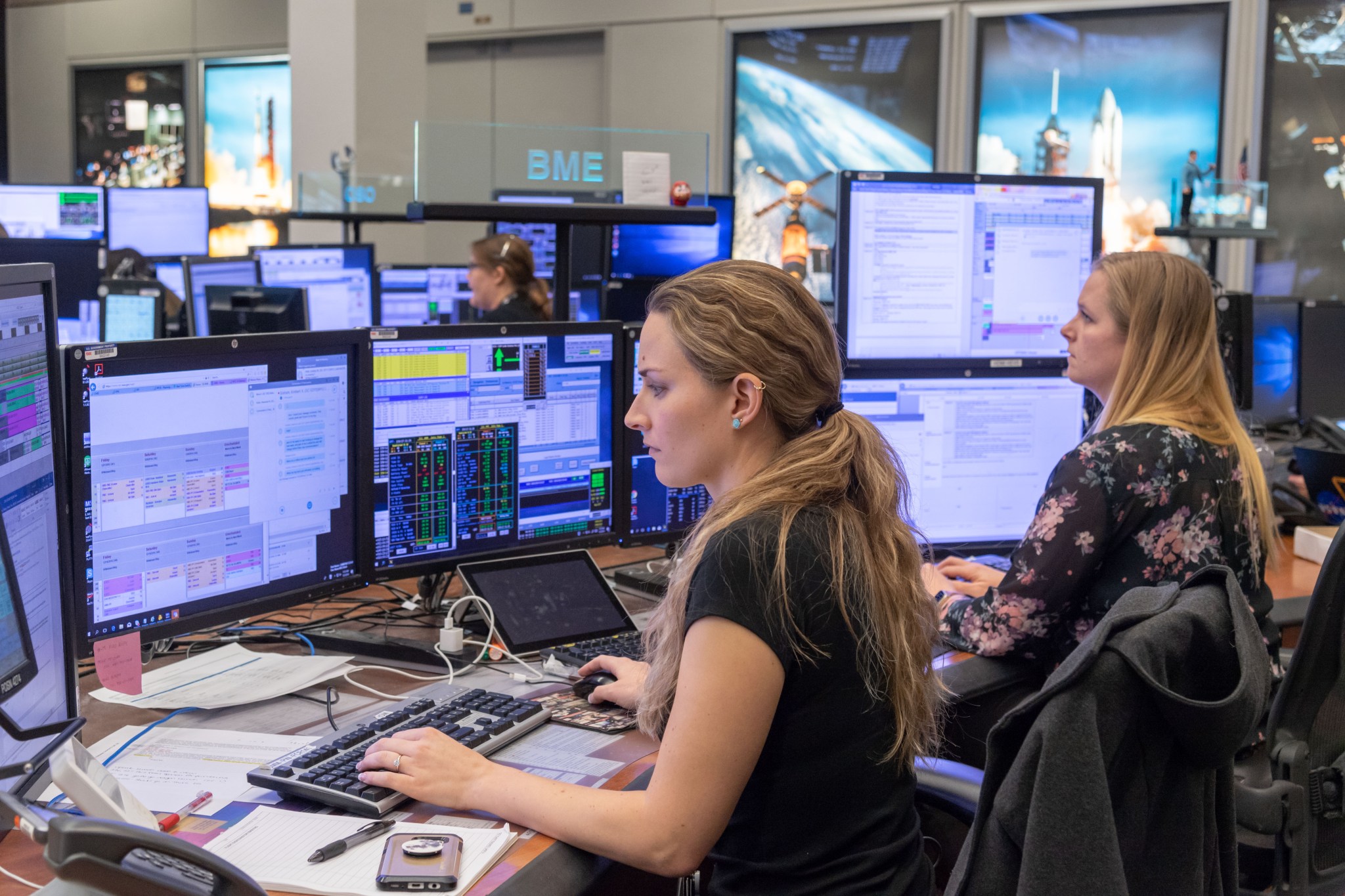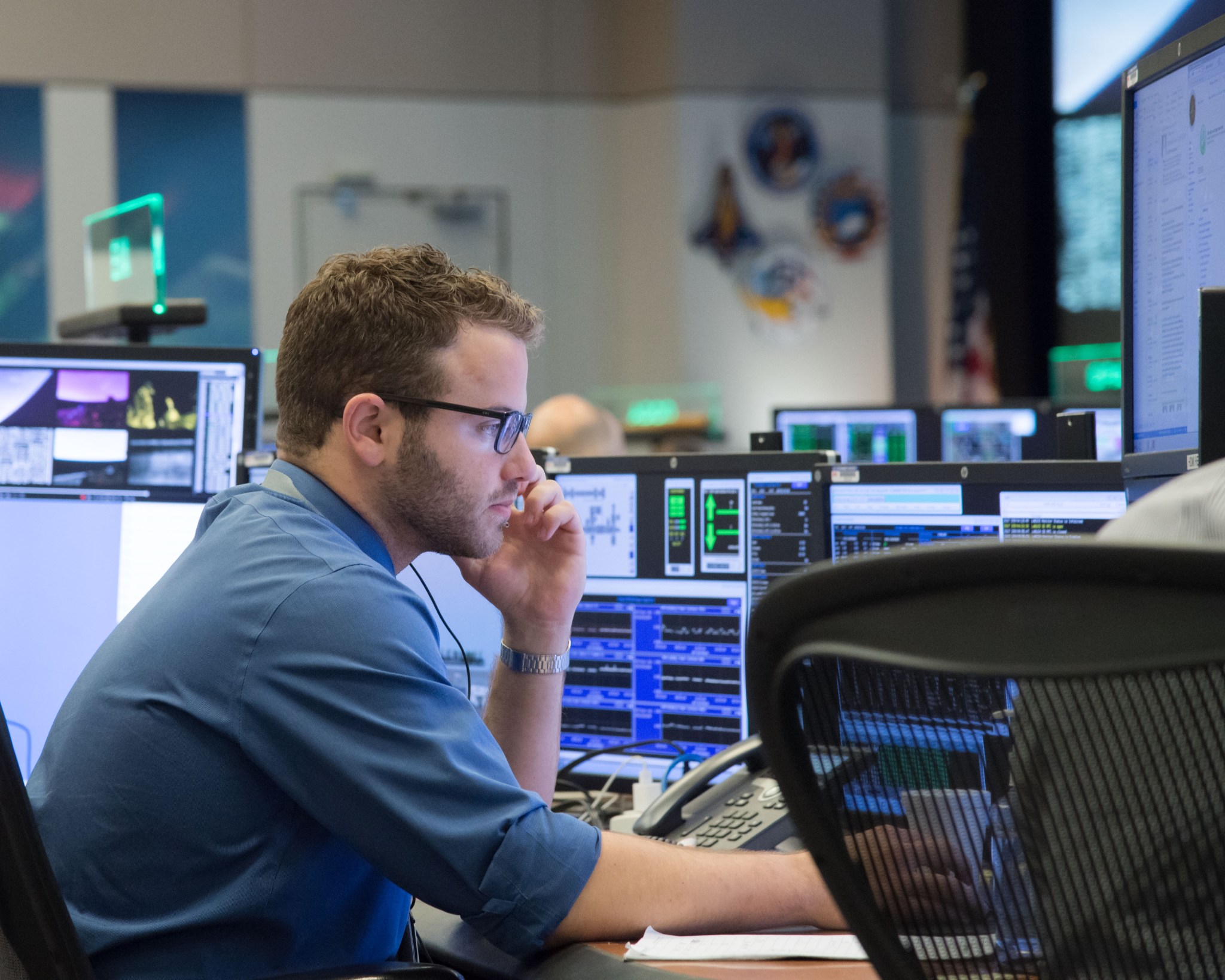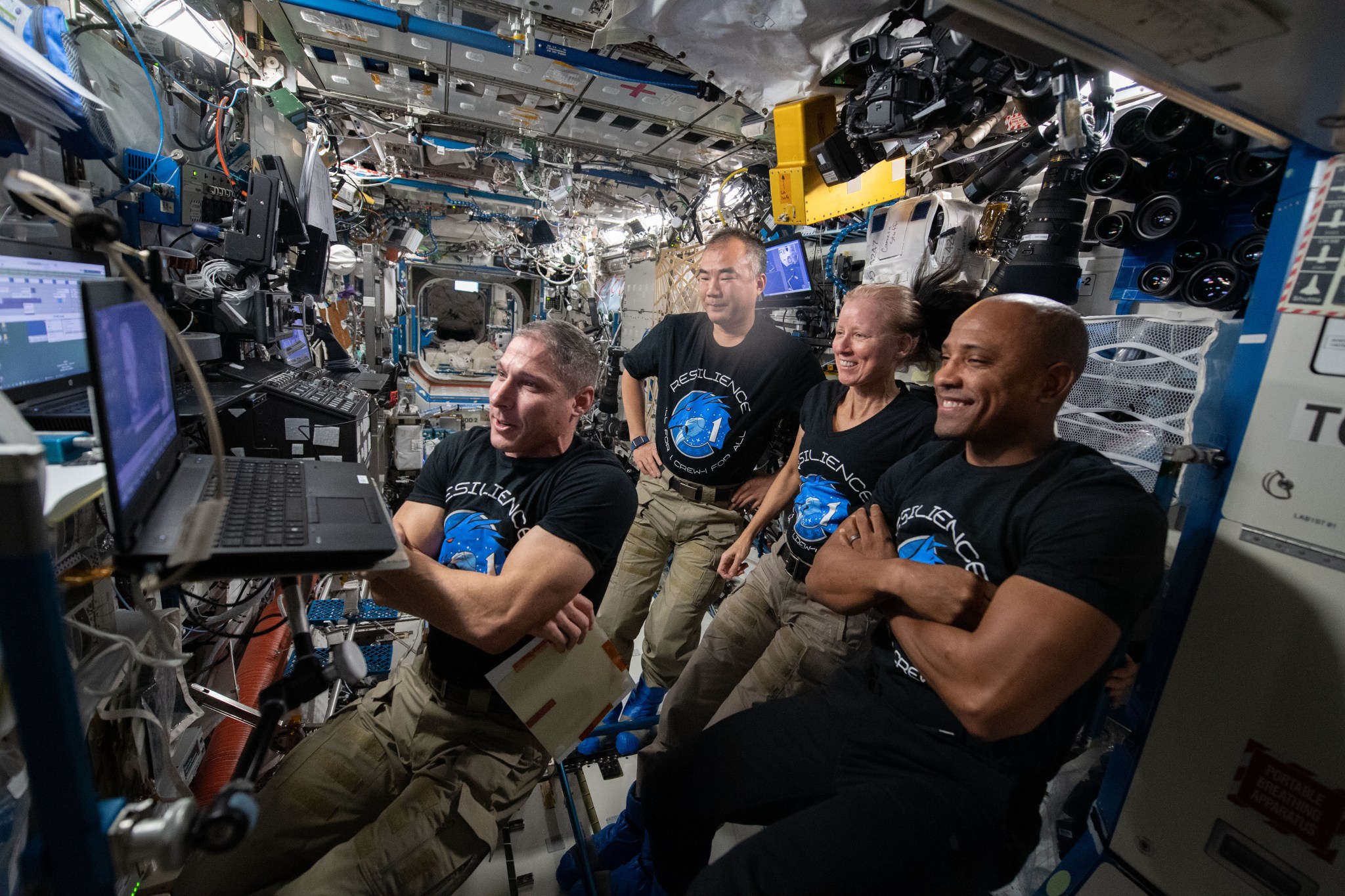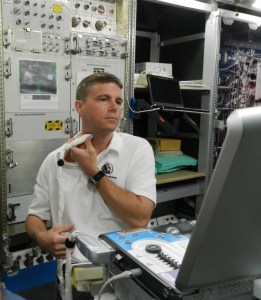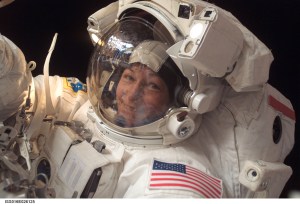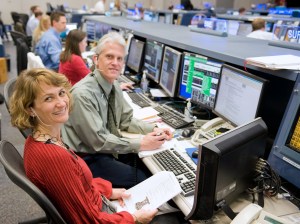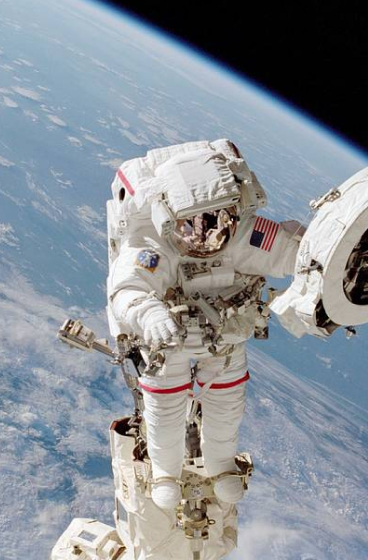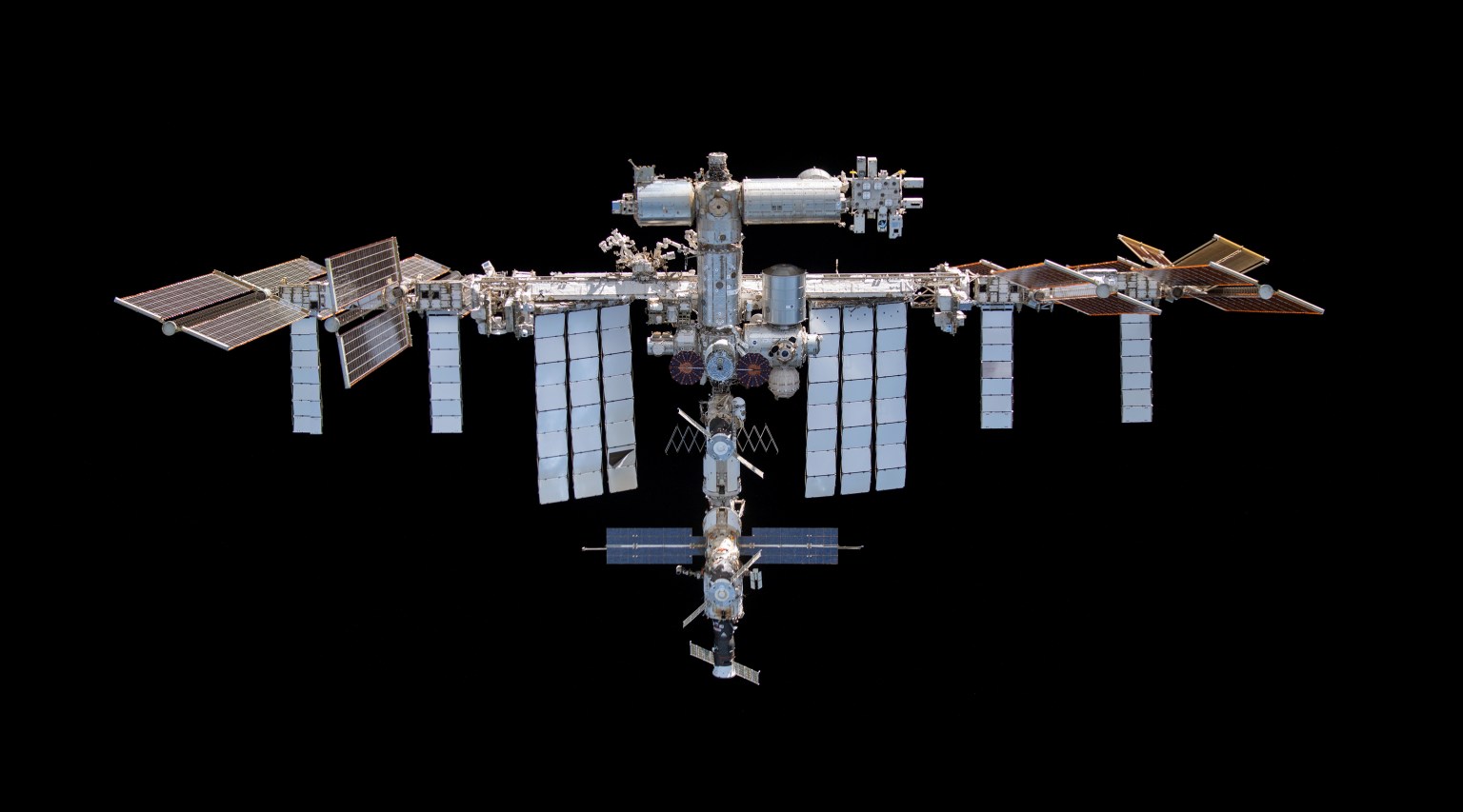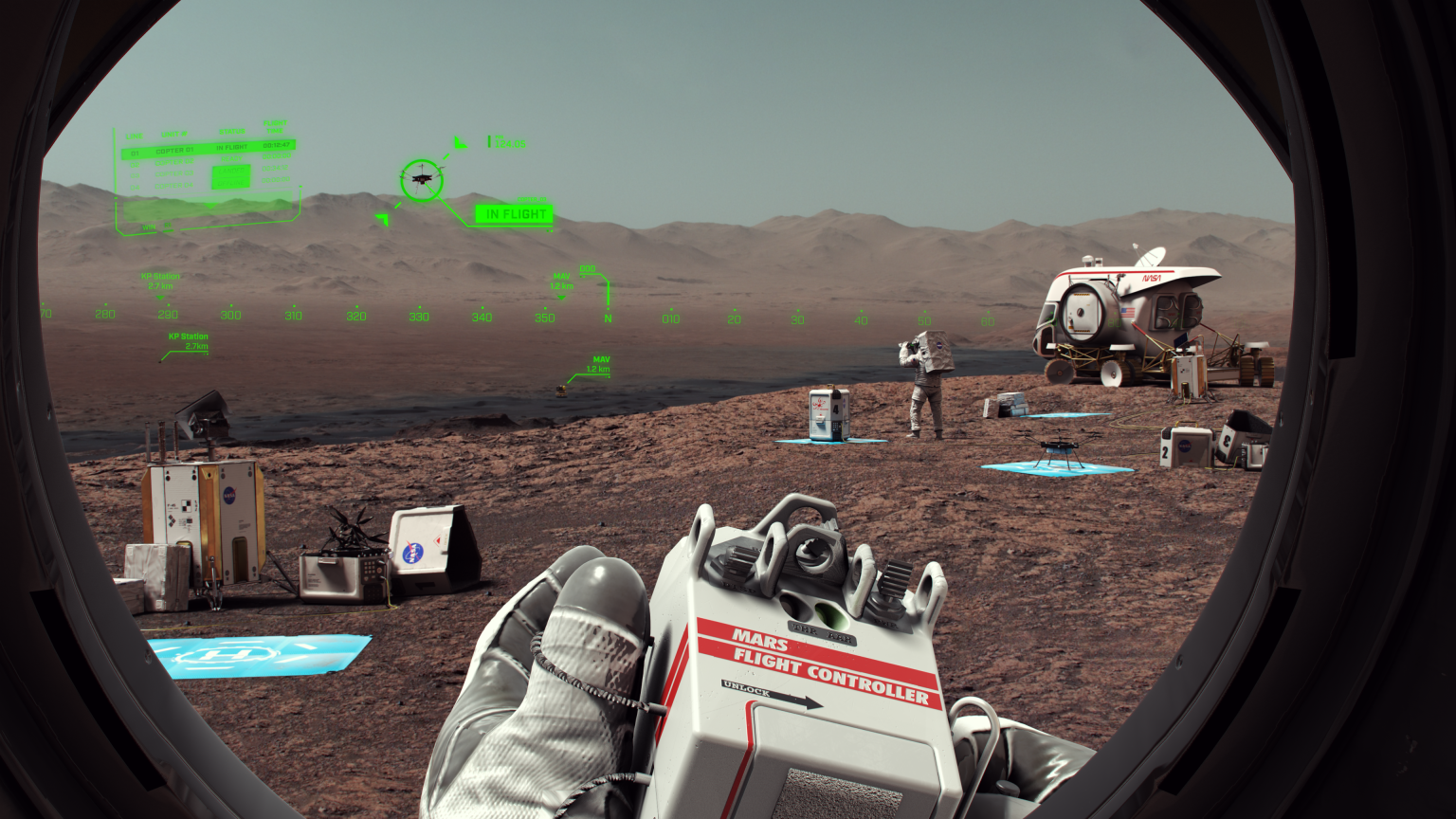Fun Fact: You might assume that the ISS astronauts can video chat with friends and family back home whenever they want. Actually, the astronauts do not have direct dial access for video chatting because of security reasons, so the Biomedical Flight Controller (BME) acts as the bridge to connect the onboard crew members with folks on the ground.
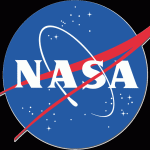
NASA
Safeguarding the Health of Crewmembers
The Biomedical Flight Controllers, whose Mission Control Center (MCC) call-sign is BME (BioMedical Engineer), serve as the primary technical representative to MCC Houston (MCC-H) for the Crew Health Care System (CHeCS), representing various labs and groups within NASA’s Human Health and Performance (HHP) Directorate.
BME ensures crew health and safety by planning, facilitating, and monitoring all ISS activities involving crew health, medical operations, and CHeCS hardware. BME acts as the gatekeeper for implementing all in-flight medical requirements and does so by coordinating and integrating with an extensive support network of Medical Support Personnel, Scientists, Researchers, and Engineers. BME and the Flight Surgeon work in close collaboration in MCC-H to provide crew health support to the Flight Director and the rest of the Flight Control Team.
One Team, Many Tasks
The BME team performs a wide array of tasks to fulfill their MCC duties, including:
- Real-time monitoring of bioenvironmental data (CO2, O2, etc.)
- Downlinking detailed physiological data or hardware data and distributing to appropriate medical teams or hardware support teams on the ground, such as:
- Crew medical examination results
- Radiation dosages
- Physical exercise data
- Environmental health data (air quality, water quality, acoustic levels, etc.)
- Health & status data for hardware to ensure operability
- Remotely controlling CHeCS hardware/software on ISS to save the crew time and effort, such as:
- Activating the air quality monitor to analyze a sample of the ISS air
- Setting up an ISS laptop’s software in preparation for remotely-guided eye examinations
- Powering on the treadmill and enabling it for crew use
- Planning, scheduling, and uplinking crew procedures for execution of all medically required crew activities, as well as any maintenance activities for CHeCS hardware
- Responding to crew questions regarding medical activities and CHeCS hardware, as well as troubleshooting any anomalies or issues as they arise
- Scheduling and conducting all private video conferencing between the crew and their family, friends, and medical support teams on the ground
- Maintaining the database of all onboard hazardous materials and ensuring proper protocol is followed for any hazardous release
- Ensuring that all aeromedical flight rules are being met
- Coordinating with International Partner (IP) medical operations teams as necessary to support crew health and medical operations needs of any IP crewmembers onboard
Points of Contact
Duane Chin
Jamie Moore



